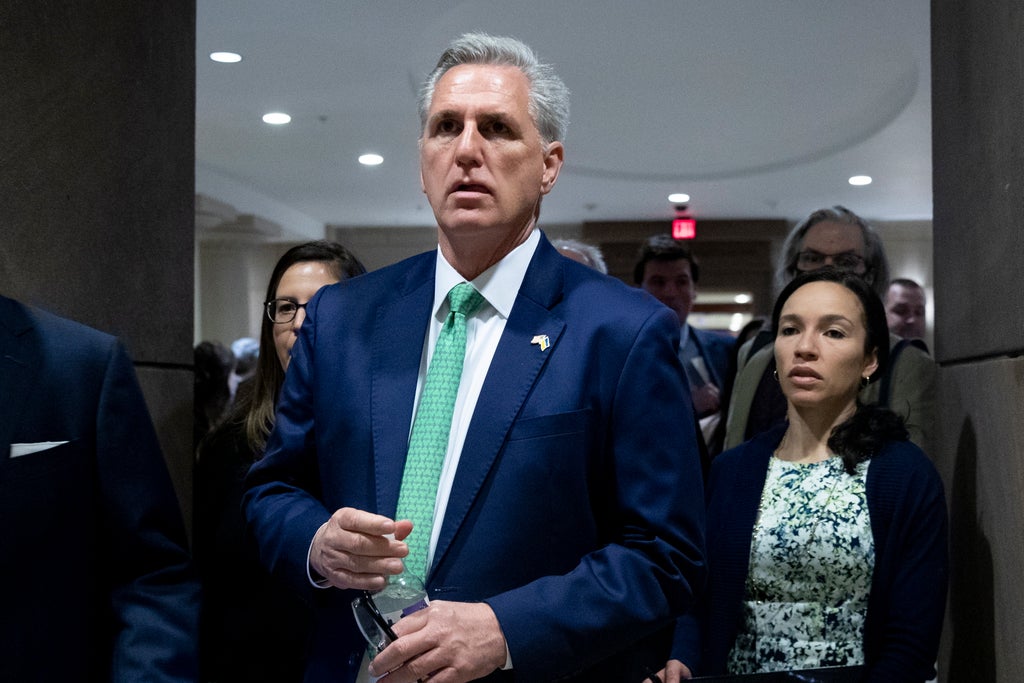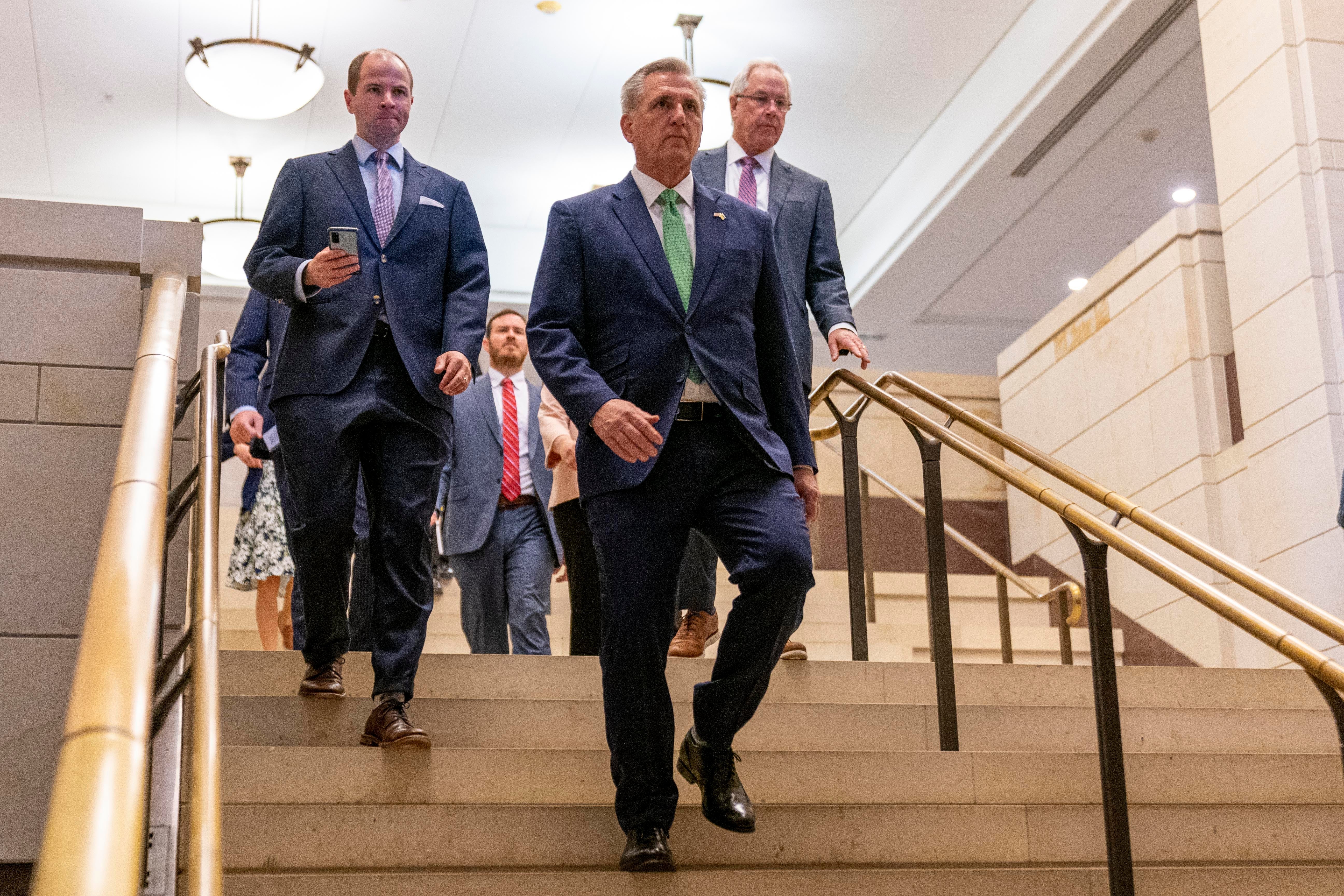
Ukrainian president Volodymyr Zelensky brought members of America’s two major political parties together for a standing ovation on Wednesday, but top House Republicans reverted to their standard attack mode just minutes after his remarks concluded.
Thus far, Biden administration officials have rejected Mr Zelensky’s calls for the US and Nato to establish what he calls a “humanitarian no-fly zone” over his country’s airspace, and the Defence Department has opposed a Polish plan to leave Soviet-made MiG-29 fighters at a US airbase for retrieval by Ukrainian pilots.
Both plans have met opposition from the US executive branch because either course of action could end with Nato personnel in the crosshairs of a Russian military response. And because Article V of the North Atlantic Treaty requires the entire alliance to treat an attack on one nation – be it against an American airbase in Germany or American pilots enforcing a no-fly zone above Ukraine – as an attack on all, and any Russian response could plunge the world into a war that could generate a nuclear conflagration.
House Minority Leader Kevin McCarthy is a member of the “Gang of Eight” – the congressional leaders who are briefed on America’s most closely held national security matters. And as an ex officio member of the House Intelligence Committee, he has access to the same information the Biden administration has used to calculate how Russia might respond to various American actions taken to counter Russia’s invasion of Ukraine.
But shortly after Mr Zelensky finished speaking, Mr McCarthy stepped up to a bank of microphones outside the Capitol Visitors Centre auditorium and renewed some of the same attack lines that have been a standard portion of GOP talking points since the outset of the current crisis.
“I've had conversations with the president long before this moment came. My advice to him was provide [Ukraine] the armament earlier to deter Putin from ever making this decision, and the entire time President Biden always said it would be the sanctions afterwards. And then when the sanctions came, he said they’d take months to work,” he said.
The Republican leader also blasted Mr Biden for a comment he made during a press conference months ago, in which he suggested Mr Putin might mount a “small incursion” into Ukraine, and said the delay in sanctions gave Mr Putin “the wrong message”.
“The slowness of moving weaponry to Ukraine to have a deterrent where Russia would not invade, all of that has been a mistake,” he continued, failing to mention that it was with the support of the entire Republican caucus that Mr Biden’s predecessor, Donald Trump, tried blackmailing Mr Zelensky into launching sham investigations into Mr Biden, using the same weapons he complains were not dispatched fast enough.

Mr McCarthy’s right-hand man, House Minority Whip Steve Scalise, also revived another GOP attack line on Mr Biden when he spoke just after his colleague.
Over a week after Mr Biden announced a ban on Russian oil imports, Mr Scalise claimed Mr Zelensky’s plea for assistance represented “another opportunity for America to step up to and take away Putin's leverage on energy”.
“There's no reason that Putin should be pocketing hundreds of millions of dollars a day by selling oil to America in the United States,” said Mr Scalise, who did not mention Mr Biden’s 8 March order prohibiting the import of Russian petroleum products into the US.

For good measure, Mr Scalise added that Mr Biden could “cut off” the need for Russian oil he has already banned from US markets by “opening up our reserves” (which Mr Biden has already done in concert with other US allies) and “opening up areas that have been closed by President Biden to leasing” (which is not necessary because US oil companies have deliberately avoided drilling in over 9,000 areas where they hold leases in order to keep the supply low and prices high).
And House GOP Conference Chair Elise Stefanik, a member of the House Intelligence Committee, echoed Mr McCarthy’s attack line a short time later, telling reporters Mr Biden “has been far too slow” in implementing sanctions.
Ms Stefanik’s complaint might have had more truth behind it a month ago, but her recitation of a weeks-old GOP talking point shows her willingness to ignore information she has access to as an intelligence committee member, as well as the Biden administration’s explanation of why they did not impose unilateral sanctions (because Mr Biden wanted to act in concert with the US allies his predecessor spurned in service of his “America First” agenda).







